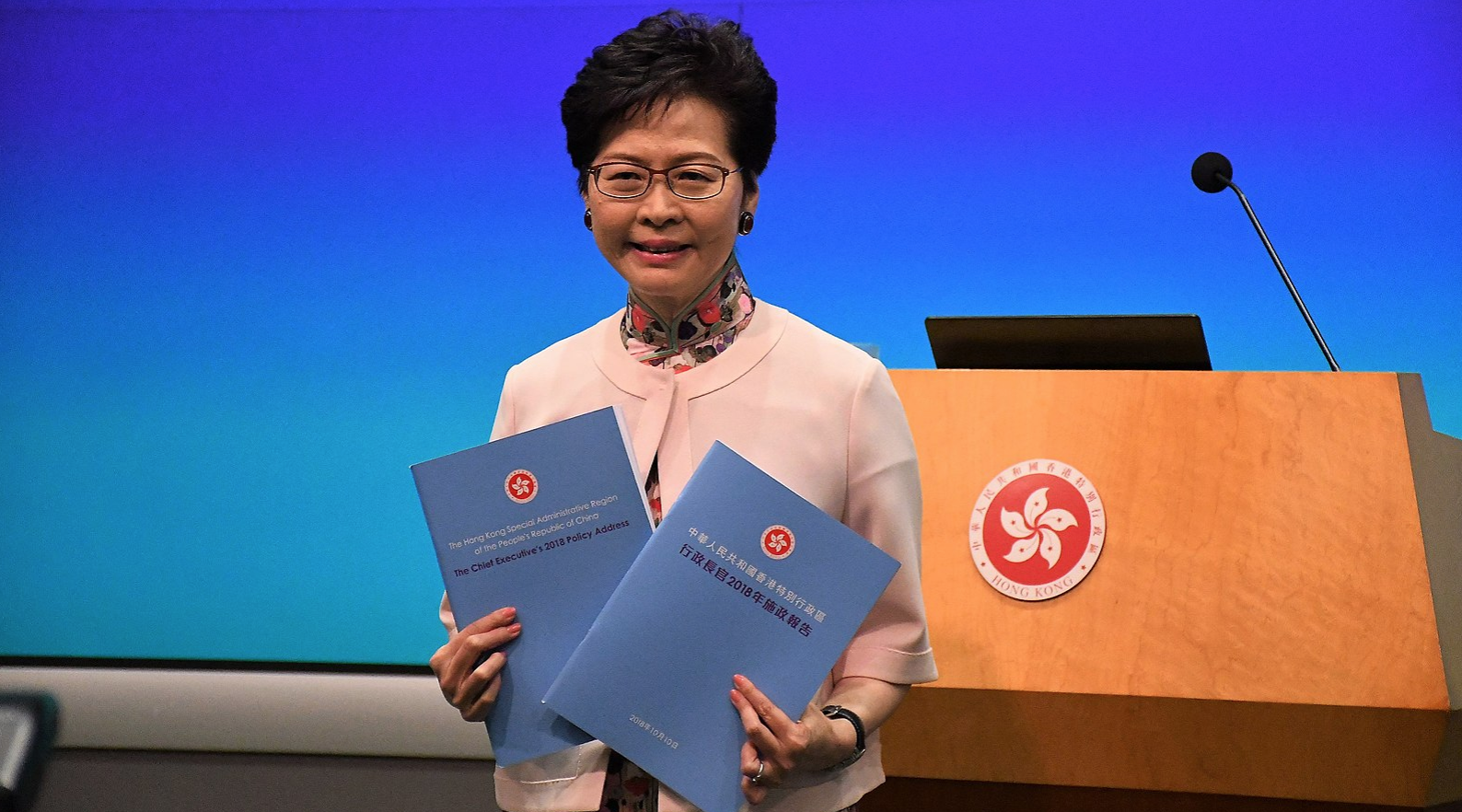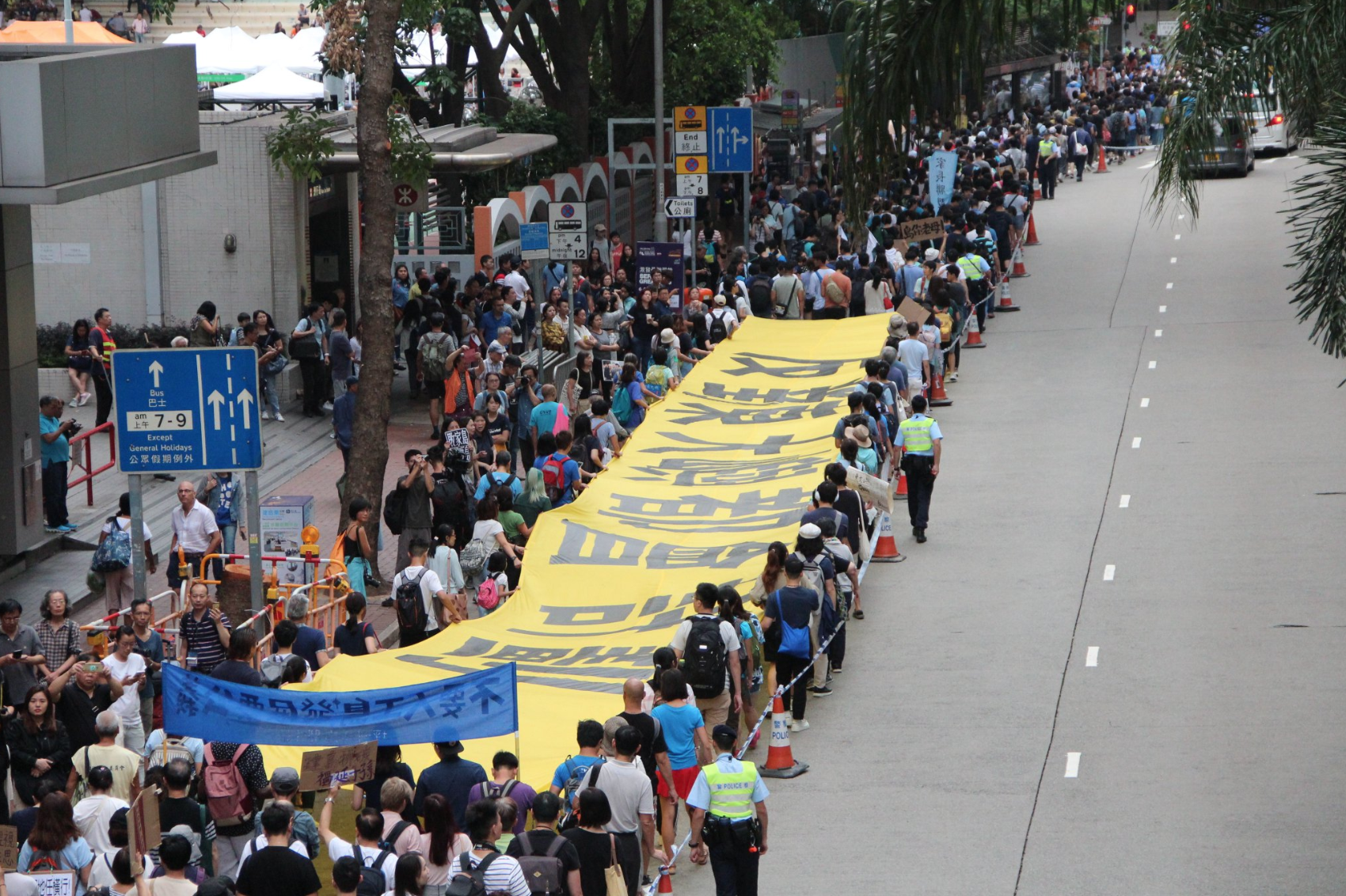To resolve its housing crisis, Hong Kong is planning to spend as much as HK$500 billion (S$88 billion) to reclaim land large enough to house its people, reported Inkstone News.
Hong Kong government's plan
Last Wednesday (Oct. 10), Hong Kong's Chief Executive Carrie Lam unveiled the government's plan to build a chain of artificial islands around Lantau island -- Hong Kong's largest island where the airport is at.
 Image via Wikimedia Commons
Image via Wikimedia Commons
Called "Lantau Tomorrow Vision", the islands would encompass 1,700 hectares and would be able to house 1.1 million people.
The project is estimated to cost as much as HK$500 billion (S$88 billion).
According to South China Morning Post (SCMP), Lam said the plan "will be expensive" -- it would be Hong Kong's largest and priciest one so far -- but it is necessary as it can "provide a long-term supply of housing and land" to meet the people's demands.
She added:
"With that objective in mind, I really don’t think I should be called an enemy of the people.
I could go for the populist route, and not do this sort of controversial thing, but that’s not good for the people."
[related_story]
Many protest
But Hongkongers did not take well to her plan.
Thousands of people took to the streets on Sunday (Oct. 14) to voice their disagreement.
They called the government's plan a "white elephant" project and that it places too much burden on the taxpayers while benefiting property developers.
March organizers calling on people to oppose the Lantau artificial island project proposed by the Hong Kong government as a measure to tackle the city’s increasing housing shortage. pic.twitter.com/RxEcwfiuol
— Fiona Sun (@FionaLSun) October 14, 2018
Protesters also objected due to the damage that would be done to the marine environment and wildlife -- the numbers of Lantau's Chinese white dolphins are already at a critical low.
In addition, some say that as the project takes at least a few decades to be realised, it cannot resolve the housing issue for those with an urgent need for affordable housing, reported SCMP.
Critics also say the government pushed ahead with the plan without waiting to hear the answers gathered from a public consultation on what the government should do.
After Sunday's protests, Lam had defended the land reclamation plan.
Least affordable housing market in the world
Hong Kong has the least affordable housing in the world.
According to the latest Demographia International Housing Affordability Survey, a median home costs 19 times the gross annual median income in 2017, up from 18 times in 2016.
In comparison, the next least affordable housing market is Sydney at 12.9. Singapore's figure is 4.8.
This means that it is almost impossible for a young working professional to buy an apartment without the help of his or her parents.
For instance, SCMP recently featured a young professional earning HK$60,000 (S$10,540) monthly who could only afford to buy a 292-square feet studio apartment with his parents help. The apartment costs HK$6 million (S$1.05 million).
Why is housing so expensive in Hong Kong?
Bad land management
Two experts in an interview with Vice said that high housing prices in Hong Kong are not due to land scarcity, but rather, it is due to bad land management -- land is being inefficiently used or conserved.
This means that expanding the land space in Hong Kong is not the only way to resolve its housing crisis.
According to the Hong Kong government, only 3.7 per cent of land in Hong Kong is used for urban housing (private and public residential).
Protesters had also questioned why the government did not do more to make use of brownfield sites -- damaged farmland mostly located in the New Territories -- to increase land available for residential purpose.
Government earns money by land sale
According to CNBC International, the Hong Kong government offers land to developers by tender.
The highest bidder, who is increasingly a mainland Chinese developer, wins.
Such developers then demand high prices for the housing they build.
And as the Hong Kong government makes a good amount of money through land sales -- almost 30 per cent -- it earns less if property prices drop (this is also one of the reasons why taxes can be kept low).
This suggests they are not inclined to resolve the housing problem by curbing the cost of housing.
Top image via Jessie Pang/Twitter
If you like what you read, follow us on Facebook, Instagram, Twitter and Telegram to get the latest updates.
